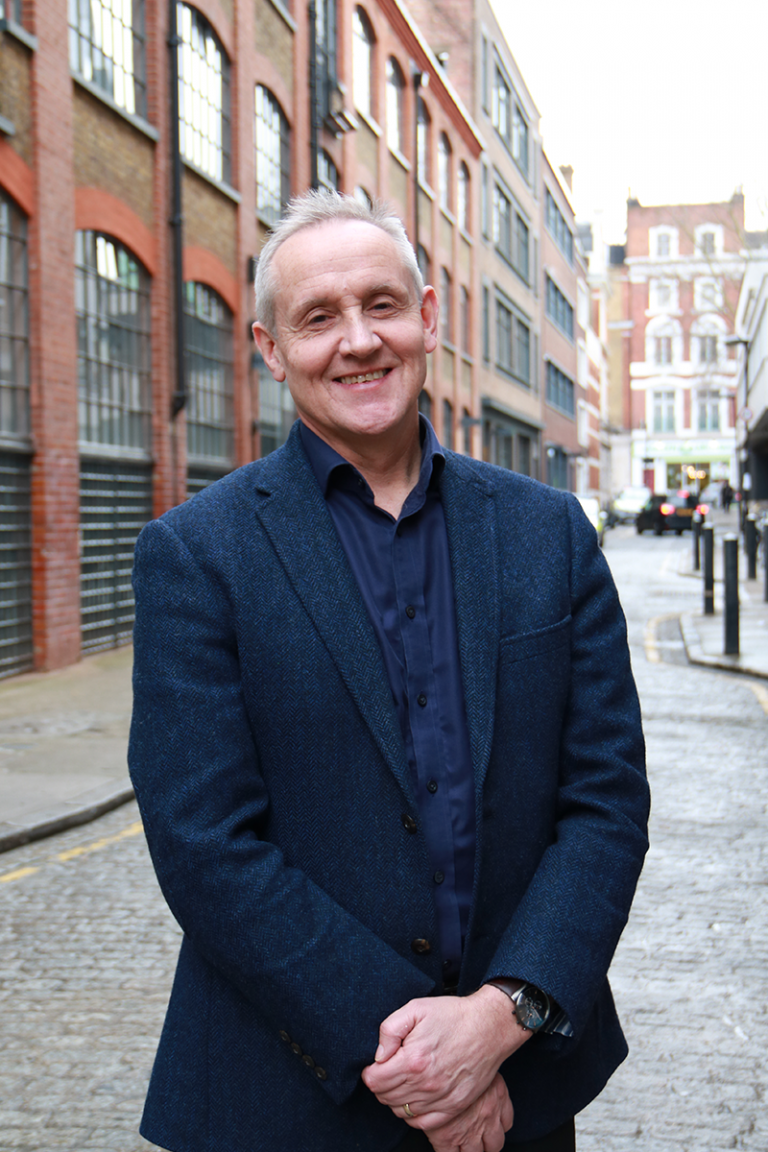Stuart Foster is Professor of History in Education, and Executive Director of the UCL Centre for Holocaust Education.
What attracted you to take up your position at IOE?
I worked in teacher education at universities in the USA for eight years and wanted to return to England. IOE, with its stellar global reputation for excellence in education, was my first choice as a place to work, and I was delighted to be offered a position here in 2000.
I have taught on all its major programmes: PGCE, MA and PhD, served as a Head of Department and led two major national education initiatives (UCL Centre for Holocaust Education and the First World War Centenary Battlefields Tour Programme).
What do you enjoy most about what you do?
There are so many things I enjoy about my work. First and foremost, I work with some outstanding colleagues. I have learned so much from them, and I continue to be impressed by their commitment and expertise.
I also enjoy the variety of experience that my role affords. It involves working with colleagues across the university, partners from other organisations, teachers and students in schools, philanthropic funders, representatives from the media, international colleagues and a host of other stakeholders and educators.
What working achievement or initiative are you most proud of?
I am proud that the two major national programmes I have led over the past decade or more have positively impacted education nationally and internationally.
For example, the Centre for Holocaust Education has produced a series of ground-breaking research studies and, to date, more than 20,000 teachers have participated in its research-informed programmes.“
It has had a demonstrable impact on improving teaching and learning in schools across the country.
Similarly, our First World War Battlefields Tour Programme ensured that more than 8,000 teachers and students from 2,800 schools across England participated in our four day educational tour of the ‘Western Front’.
“The six-year initiative won five awards and 92% of teachers stated that the programme ‘would significantly influence future teaching’.
What is the focus of your research and what benefits do you hope your discoveries or insights will bring?
Underpinning all my work is the broad principle that research should inform practice. For example, the results of the Centre’s landmark study, What do students know and understand about the Holocaust? (2016) was based on a detailed study of the knowledge and understanding of approximately 10,000 students aged 11-18.
“The study – the largest of its kind anywhere in the world – provided significant insights into students’ understanding of the Holocaust and identified common myths and misconceptions.
This detailed understanding of the limitations in students’ knowledge has significantly informed and improved the development of our educational programmes and resources. In particular, it was central to the creation of our research-informed KS3 textbook, Understanding the Holocaust, of which more than 50,000 copies have been distributed to over 1,000 schools across the country.
What's the most important thing you've learned from your students?
The vast majority of my students have been, or are, teachers. Not only am I constantly in awe of their incredible commitment to education, but I am also impressed by the depth and variety of their knowledge, understanding and experience. I have learned so much from fellow educators over the years.
“Above all, my life has been enriched by the opportunity to work with colleagues from different cultures and countries across the world.
How do you think being in London benefits your work?
UCL is a global university situated in one of the world’s great cities – its appeal and the opportunities it affords are irresistible.
“As a history specialist it is, of course, a privilege to work in London and have access to some of the world’s most eminent institutions, museums, libraries and galleries.
I also value the incredible diversity – of people, places and ideas – that exist in this remarkable city.
What other subjects outside of your area of specialism interest you?
I have an associated interest in politics and social justice.
What might it surprise people to know about you?
When I was young, I captained my county’s football team (national champions in 1978) and played for England at university level. I still play football and more than 40 years later, I am hoping to play for the England over 60s 11-a-side team!
Is there anything else you'd like to add?
The Centre for Holocaust Education and the ‘Empire, Migration and Belonging’ in schools research project have been generously funded by the Pears Foundation. The Foundation’s funding has allowed us to engage in pioneering, high quality, high impact work. I’d like to express my gratitude to Sir Trevor Pears and Amy Braier for their steadfast support over many years.
Last updated 28 July 2023.
 Close
Close


